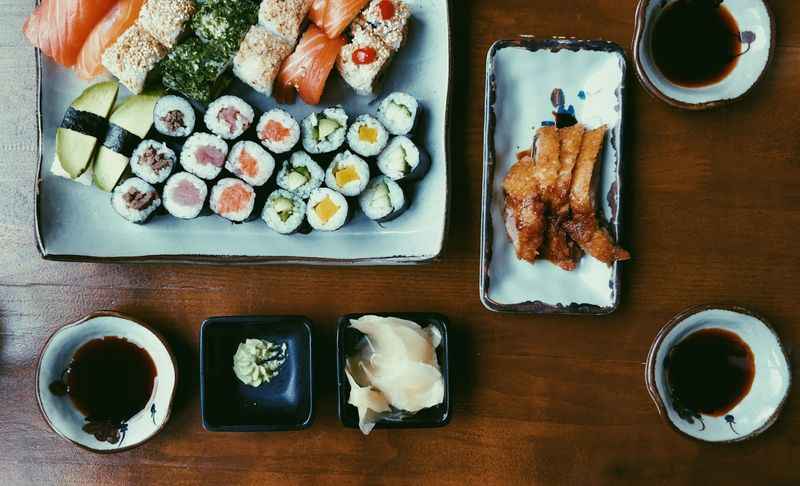Planning a Trip: Why You Should Consider the Cuisine Before Taking Off
Traveling offers a plethora of experiences that enrich our lives, from stunning landscapes and historical landmarks to vibrant cultures and new friendships. Yet, one of the most profound and enjoyable aspects of travel is the opportunity to savor different cuisines. The food culture of a destination can provide deep insights into its history, traditions, and daily life, making it a crucial element to consider when planning your next trip. This article explores why you should think about the local cuisine before finalizing your travel plans.

Enhances Cultural Understanding
Food is a gateway to understanding a culture deeply. Each dish tells a story, often reflecting the local history, climate, and social habits. For instance, enjoying a traditional Japanese tea ceremony can offer a glimpse into the country's dedication to precision and hospitality. Sampling street food in Thailand reveals the communal nature of Thai society and its emphasis on fresh, vibrant ingredients. Even something as seemingly simple as tasting local a cupcake—whether they're the rich, buttery versions found in Paris or the inventive, flavor-packed varieties in New York—can offer insights into regional baking traditions and creative culinary trends. By prioritizing cuisine in your travel plans, you gain a richer, more nuanced appreciation of the culture you're exploring.
Budget-Friendly Options
Food is a significant expense for any trip, and it can add up quickly. By researching the cuisine beforehand, you can find budget-friendly options that will still allow you to experience the local food scene. Street food, markets, and local restaurants are often more affordable than touristy restaurants and can give you a more authentic taste of the country.
Creates Memorable Experiences
Some of the most unforgettable travel memories are tied to food. Whether it's the first bite of a buttery croissant in a Parisian café or a hearty bowl of pho on a bustling street in Hanoi, these experiences linger long after the trip ends. Food has a unique ability to engage all our senses, creating lasting impressions that other travel experiences might not. When planning your trip, researching iconic dishes and must-visit eateries can ensure you don't miss out on these extraordinary moments.
Supports Local Economies
Choosing to explore a destination’s cuisine not only benefits you but also supports the local economy. Dining at local restaurants, visiting food markets, and taking cooking classes can directly contribute to the livelihoods of local chefs, farmers, and artisans. This economic support helps preserve culinary traditions and sustains local food systems. By being a conscientious traveler who values local food culture, you can positively impact the communities you visit.
Offers Health Benefits
Trying new cuisines can also be beneficial for your health. Many traditional diets around the world emphasize fresh, whole foods and balanced nutrition. The Mediterranean diet, for example, is renowned for its heart-healthy benefits, focusing on vegetables, fruits, nuts, and olive oil. Exploring such diets can introduce you to healthier eating habits and inspire changes in your diet back home. Additionally, learning about food sourcing and preparation methods in different cultures can broaden your understanding of healthy eating practices.
Facilitates Social Connections
Food has a magical way of bringing people together. Sharing a meal can break down barriers and foster connections with locals and fellow travelers alike. Whether you're dining in a communal setting, participating in a cooking class, or simply striking up a conversation with a vendor at a food market, these interactions can lead to meaningful exchanges and friendships. Planning your trip with a focus on cuisine opens up numerous opportunities for social engagement and cultural exchange.
Encourages Culinary Adventure
For many travelers, trying new foods is an adventure in itself. Venturing beyond your culinary comfort zone can be thrilling and rewarding. Experiencing unfamiliar flavors, textures, and cooking techniques expands your palate and adds an element of excitement to your journey. From savoring exotic fruits in tropical regions to sampling unique street foods, culinary adventures make your travels more dynamic and memorable. Prioritizing cuisine in your trip planning ensures you're ready to embrace these gustatory challenges.
Boosts Trip Planning Enjoyment
Researching and planning your food experiences can be one
of the most enjoyable parts of preparing for a trip. Delving into food blogs, watching travel cooking shows, and reading restaurant reviews allows you to explore a destination's culinary scene from the comfort of your home. This anticipation builds excitement and gives you specific goals to look forward to, enhancing the overall travel experience. By incorporating cuisine into your planning, you're not just preparing a travel itinerary but curating a gastronomic adventure.
Supports Sustainable Travel
Focusing on local cuisine can also contribute to more sustainable travel practices. By choosing to dine at locally-owned establishments and markets, you reduce your carbon footprint associated with imported foods and large chain restaurants. Many regions have rich agricultural traditions that promote sustainable farming and eating practices. Supporting these local food systems encourages sustainability and environmental responsibility. When planning your trip, seek out farm-to-table restaurants, organic markets, and eco-friendly food tours to align your culinary adventures with sustainable travel principles.
Expands Your Culinary Skills
Participating in cooking classes and food tours during your travels can significantly enhance your culinary skills. Learning to prepare local dishes from experienced chefs provides hands-on experience and a deeper understanding of regional ingredients and cooking techniques. These new skills can be brought back home, allowing you to recreate your favorite dishes and share your travel experiences with friends and family. Incorporating cuisine-focused activities in your travel plans ensures that your trip leaves a lasting impact on your culinary repertoire.

Considering cuisine before embarking on a trip can greatly enrich your travel experience. From enhancing cultural understanding and creating memorable moments to supporting local economies and promoting health benefits, the impact of food on travel is profound. It facilitates social connections, encourages culinary adventures, and boosts the enjoyment of trip planning. Additionally, focusing on local cuisine supports sustainable travel and expands your culinary skills. So, as you plan your next adventure, remember to make room for the delightful and diverse world of food. Your taste buds, and your travel memories, will thank you.







